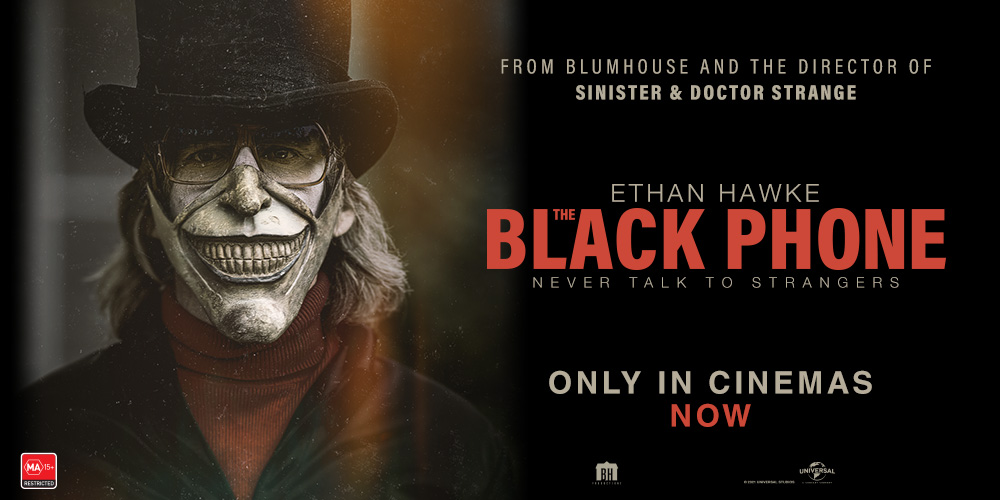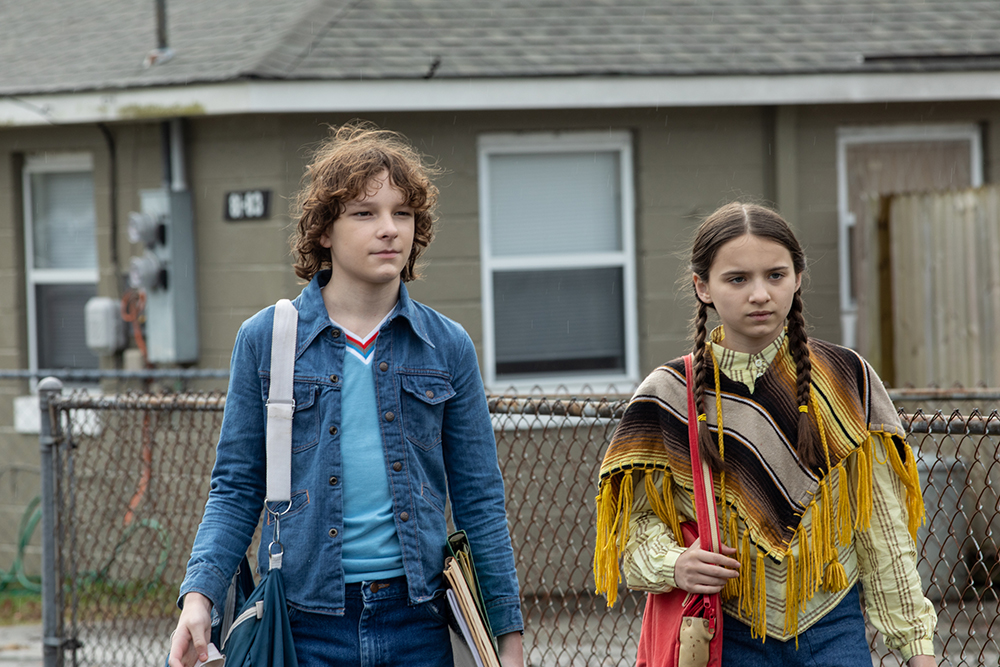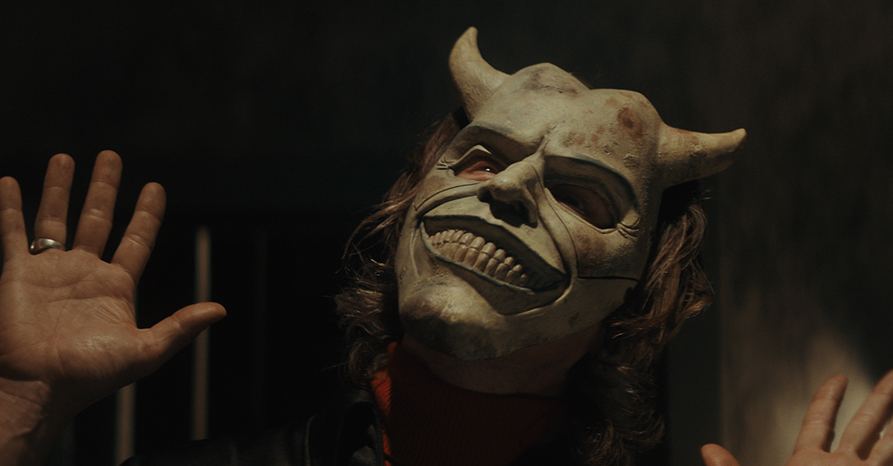
This article contains discussion of real-world historic cases related to children that may be distressing to some readers. If you require assistance, please contact Lifeline on 13 11 14 or Beyond Blue on 1300 22 4636.
Scott Derrickson (Doctor Strange, Sinister), writer-director of the all new horror/thriller feature The Black Phone, always wanted to create a film that explored the emotional complexity and pain of childhood while also recognising a child’s ability to overcome tragedy.
“I knew I wanted to make something in that spirit, but I couldn’t find a story that felt like it would capture that feeling. That is, until I read The Black Phone,” Derrickson has previously stated of the film, which marks a return to his terror roots.
The Black Phone focuses on Finney (Mason Thames), a shy but clever 13-year-old boy who is abducted by an infamous child abductor and serial killer known as The Grabber (Ethan Hawke). Finney becomes trapped in a soundproof basement with a broken black phone somehow connecting him with the voices of The Grabber’s previous victims. It quickly becomes a terrifying ordeal in which the previous victims and Finney’s sister Gwen (Madeleine McGraw) desperately try to save him from suffering the same fate.

Finney Shaw (Mason Thames) and Gwen Shaw (Madeleine McGraw) in ‘The Black Phone’
Written by Derrickson and longtime creative partner C. Robert Cargill, The Black Phone adapts a short story written by Joe Hill and inserts audiences into a late ’70s, American setting.
“I remember when going into elementary school, at least where I grew up in North Denver, there was a new presence of serial killers,” Derrickson said. “It was the mid-’70s, and everyone was telling urban legends about the worst kinds of serial killers. All of these horrors had become such a real presence in everyone’s psyches.”
Derrickson’s challenge was to capture this horror and insert it into a nostalgic view of America’s past.
“The trick was to capture not just what the era looked or sounded like, but what did it feel like? I wanted The Black Phone to feel like how the late ’70s felt to me when I was 12 and 13.”

Ethan Hawke as The Grabber in ‘The Black Phone’
Writer Joe Hill has admitted the short story the film adapts was inspired by his own experiences growing up in America and the sense of injustice that resonated with the increase of murders at the time.
“One of the things we turn to fiction for is to get justice that we don’t get in real life. In real life, these awful things happen and there’s no way to fix it, so we fix it the way we can, with stories,” Hill said.
By the 1980s, child murders routinely gripped headlines, including the 1981 kidnapping and murder of six-year-old Adam Walsh in Florida. Seemingly overnight, American childhood had changed forever.
“When Adam Walsh was killed, every kid in the country knew his name, knew how he died,” co-writer C. Robert Cargill said.
“It gave us all nightmares, and it actually led to a line in the script: ‘You go from being an unknown kid for so long, and then everyone knows your name.’ That’s very much reflective of the era that we all grew up in.”

Mason Thames as Finney Shaw in ‘The Black Phone’
The Black Phone is somewhat of a reunion for both Derrickson and Cargill as they partner with both Ethan Hawke and Blumhouse Productions for the first time since their 2012 thriller, Sinister.
“That film [Sinister] really cemented Scott and Cargill in the genre as filmmakers with a keen sensibility to keep audiences on their toes,” said executive producer Ryan Turek.
“With The Black Phone, they’ve done it again, except this time, looking at the traumas and dangers of being a kid growing up in the ’70s and ’80s. Kids had a lot more freedom back then, which made them a lot more susceptible to danger, but it also kept kids on their toes. The film does a great job of inserting the audience into that experience.”
Hawke has previously been quoted as saying, “I thought it was special because, yes, it’s a scary movie, but it has a heart of gold.”
The overall result is a film that transcends the horror genre, recognising the strength of children and the power of family to endure even the darkest situations.
“Scott and I believe that great genre films take a genre that you already love and tell that story, and intercept it with a different genre,” Cargill said. “Here, we wanted to write a coming-of-age film that got interrupted by a horror movie.”
‘The Black Phone’ is in cinemas now









